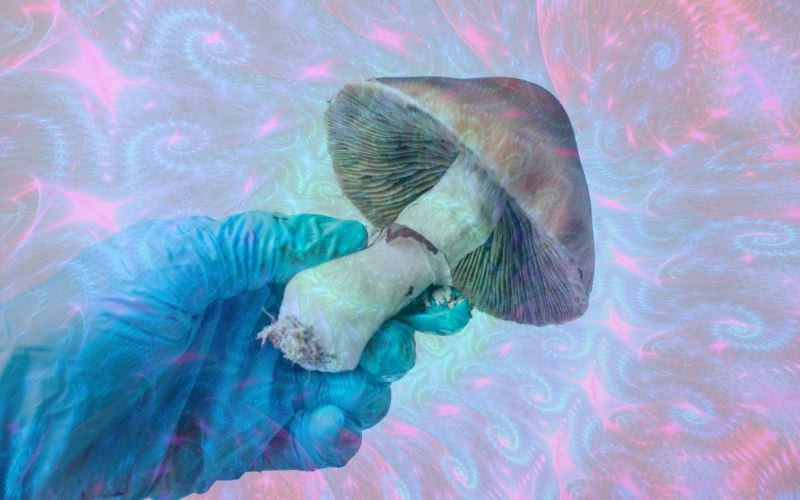The American Journal of Psychiatry is kicking off the new year with a special edition focusing on psychedelics.
Noting that the special issue comes 30 years after publication of the first peer-reviewed studies of DMT’s effects on healthy volunteers, the journal’s editors describe the current state of psychedelics as “a moment of legitimacy for what was once considered a fringe, fledgling movement driven solely by a select group of zealously dedicated scientists and clinicians.”
“In contrast to this early nascent period, the enthusiasm, interest and pursuit of scientific and medical research on the psychiatric applications of psychedelic compounds has exploded in recent years, leading to the declaration of the current phase as a ‘renaissance’ period for psychedelic research,” the journal’s editors assert.
The editors point to “objective data” supporting the notion of a psychedelic renaissance.
“The combined sample size across all modern-era published clinical trials evaluating a psychedelic compound for treatment of one or more mental-health conditions now exceeds 1,000 (with the largest representation, by far, being those participating in psilocybin studies), and commercial investments in psychedelic drug development now number in the billions of dollars,” the editors explain.
While psychedelics clearly are having a moment – despite the FDA’s rejection of Lykos Therapeutics’ new-drug application for MDMA last August – “fundamental questions and methodological challenges remain unanswered and in critical need of additional research.”
“Sufficiently addressing and answering these scientific and clinical questions will be critical for the future clinical success of these agents,” the editors assert. “This issue of the Journal addresses many of the ongoing challenges and looming questions in the field of psychiatric psychedelic research and treatment. These include issues relevant to basic pharmacology and effects on neural circuits, evidence of clinical efficacy, methodological challenges/limitations of existing research, and contextualizing factors pertaining to public health and policy considerations.”
The special edition offers a comprehensive exploration of the evolving field of psychedelic research and its implications for psychiatry. Highlights include:
- Clinical efficacy and methodological challenges – Roger McIntyre and others review the evidence base for psychedelic treatments and identify critical unanswered questions, including durability of effects, dosing protocols and cost-effectiveness. They emphasize the need for rigorous study designs to establish the safety and benefits of these treatments.
- Ultra-fast psychedelics – Johannes Ramaekers et al. explore the potential of short-acting psychedelics such as 5-MeO-DMT and DMT in treating depression. They suggest that these compounds may pave the way for more flexible and accessible treatment models, though questions about their efficacy compared to traditional psychedelics remain.
- Psilocybin and MDMA in focus – Gregory Fonzo and other experts provide an in-depth analysis of psilocybin’s role in treating major depression, highlighting its strong evidence base while noting limitations such as expectancy effects and variable methodologies. Aaron Wolfgang et al. draw important distinctions between recreational MDMA use and MDMA-assisted therapy, emphasizing the need for controlled clinical settings to maximize benefits and minimize risks.
- Psychedelic-induced neuroplasticity – David Olson discusses advances in imaging techniques that could bridge the gap between animal studies and human trials by tracking neuroplasticity triggered by psychedelics. This could enable personalized dosing and aid in the discovery of novel compounds.
- Veterans and psychedelic therapy – Wolfgang and others summarize initiatives from the Department of Veterans Affairs aimed at integrating psychedelic-assisted therapies for mental health conditions – particularly PTSD – into a clinical framework.
- Ethical and safety considerations – Sharmin Ghaznavi et al. address the potential harms associated with psychedelics, ranging from mild adverse events to rare but severe psychiatric and cardiovascular effects. The authors call for robust safety protocols and long-term monitoring to ensure informed clinical practice.
- Original research on psilocybin – Scott Aaronson and others report promising results from an open-label trial of psilocybin for treatment-resistant depression, demonstrating significant safety and efficacy. Broc Pagni et al. reveal that psilocybin therapy fosters lasting personality changes in individuals with alcohol-use disorder, including reduced impulsivity and increased openness, which correlated with decreased alcohol consumption.
“A survey of this issue’s table of contents impresses upon the reader the highly multifaceted and interdisciplinary scope of inquiry required to sufficiently characterize the basic, clinical and public health facets of psychedelic therapeutics,” the editors state. “This diverse approach brings together scientists and clinicians of various professional backgrounds with sometimes disparate views on mechanism of action, role of drug versus therapy in centrality of therapeutic benefits, and various other considerations with a common goal of addressing these critical questions. However, there is considerable agreement that the unanswered questions are numerous, critically important to the evolution of the field and can only be addressed with the continued generation of high-quality clinical and scientific data with clever study designs aimed at providing much-needed answers.”

